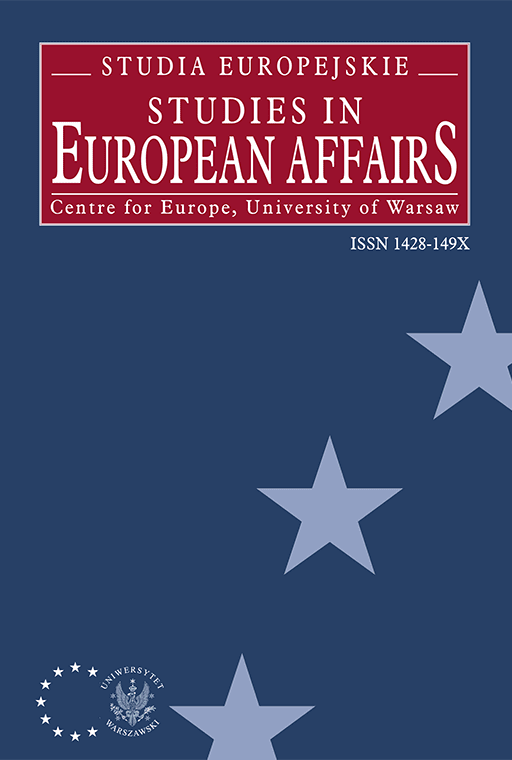
ISSUE: 3/2008
- Volume 47
- Number 3
- 2008
Subscribe NEWSLETTER
Studia Europejskie –
Studies in European Affairs
ISSN: 1428-149X
e-ISSN: 2719-3780
License
Articles published in the journal are under a Creative Commons Attribution – Non Commercial – No Derivatives 4.0 International License
Unia Europejska – samorząd terytorialny a profil jego międzynarodowej współpracy na poziomie lokalnym i regionalnym w przyszłości
The European Union – local government and the profile of its international cooperation upon local and regional levels in the future
Abstract
Territorial autonomies have long been left beyond the European Communities’ scope of interest. It was not before the Treaty on European Union that territorial structures were established and autonomies were recognised – although only to a minor extent – as subjects of cooperation within the EU. It was an important step, enriching the process of integration in social aspects. The Treaty assignments and their implementation also revealed necessity to redefine relations between territorial autonomy, national State and the European Union for the sake of further development. At that time, however, it was already becoming clear that the EU wasn’t going to be able to protect itself from tendencies of regionalisation and from pressures of local communities, as a direct consequence of the principle of subsidiarity. On the one hand, this principle emphasises the need to give more power to local and regional communities, so that they have impact upon their living conditions and the authority to solve their own problems. On the other hand, from the point of view of the European Union Member States and their common institutions, it means that regions and local communities are allowed to participate in the forming of a new perspective of integration, where the function of the subsidiary principle is deepened. The purpose of these considerations is to describe the evolution of the community approach to territorial structures and autonomies as an important subject in the process of European integration and to show the impact of an open-minded European Union policy on territorial autonomies and their future profile of international cooperation on both local and regional basis.
Language: Polish
Pages: 103-124
How to Cite:
Harvard
Jóskowiak, K. (2008) "Unia Europejska – samorząd terytorialny a profil jego międzynarodowej współpracy na poziomie lokalnym i regionalnym w przyszłości". Studia Europejskie – Studies in European Affairs, 3/2008, pp. 103-124.